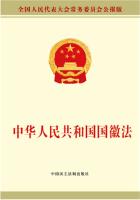I suggest we set off at once. 我建议马上动身。
2 )apply.to.应用, 运用
Whatever he learned, he applied to his work.
他把学到的一切都应用到工作上去。
Would you apply that rule to everyone?
这条规则能适用于每个人吗?
9.If your children appears to be crazy about war play and weapons, it would be a good idea to control his viewing. 如果你的孩子看起
来对打仗游戏和武器很着迷的话, 控制他看电视。
1 )appear 在这里是个连系动词, 意思是“ 似乎, 看来, 显得”。
He appeared to be very friendly with us. 他对我们显得很友好。
He appeared uneasy (to be uneasy).他显得很不自在。
2 )be crazy about 对..狂热的, 对..着迷的
John is cra zy a bout that girl. 约翰迷恋那个姑娘。
He is cra zy about skiing. 他醉心于滑雪。
3 )it 在这里充当形式主语, 该句真正的主语是不定式结构“ to control his viewing”。
It is our duty to attend to this matter. 处理这事是我们的责任。
It’s good of you to be constantly thinking of helping others.
你经常想到帮助别人是很好的。
4 )viewing 在这里是及物动词view 的动名词形式, 意思是“ 看”。
This can be viewed from two aspects. 这可以从两方面来看。
How do they view the situation in the Middle East?
他们对中东形势怎样看?
10. Make simple critiques of a show without implying that her fascination with the drama and the weapons makes her guilty by association.
对一些节目作一些简单的评论, 但不要有任何暗示, 使孩子通过联想, 由于自己对戏剧情节和武器的着迷感到内疚。
1 )介词without 在这里表示“ 不, 无, 没有”。
I did it without thinking. 我没有考虑就干了这件事。
He left without giving his address. 他没有留下地址就走了。
2 )fascination with 为.. 吸引, 对.. 迷惑。如: fascination with
the sight 对景物的着迷;fascination with the new toys 为新玩具吸引。
3 )介词by 在这里表示为了所说之目的而采用的或有待采用的手段。
The electricity supply is operated by a switch. 电源由开关控制。
Man does not live by bread alone. 人并非单靠面包活命。
11. Many preschool teachers do not like to have commercially made toy weapons brought into the classroom and welcome hearing your concerns about this matter. 许多学前班老师不喜欢那种为了赚钱而生产的玩具武器被带入教室, 他们很喜欢听到您对这件事的关注。
1 )concern about 关心, 担心。如: concerns about my wife’s health 对我妻子健康的关心;concerns about the child’s safety 对孩子安全的担心。
2 )fetch 在这里是个及物动词, 意思是“ 去拿, 去取”。指让某人从说话处到他处把物或人带来。
Run and fetch the doctor.快跑, 把医生请来。
Fetch me some bread from the shop. 请从商店给我带点面包来。
13. Look for other parents who share your views.
再找些与你意见相同的父母。
1 )look for 找寻
We’ve to look for new water sources. 我们必须寻找新的水源。
We’ve been looking for you. 我们一直在找你。
2 )share 在这里是个及物动词, 意思是“ 分享, 分担”。
She always shares my worries. 他一向分担我的忧愁。
We share a small room between us. 我们两人合住一间小房。
3 )view 在这里是个名词, 意思是“ 对事物的态度, 个人的意见”。
He holds extreme views in politics. 他在政治上持极端的态度。
He took a poor view of my conduct. 他对于我的行为不以为然。
Te xt B
Why Don’t Gir ls Think Like Boys?
为什么男女有别?
Study of the Text
1.In your opinion, are boys better at building things?
以你之见, 是不是男孩子们更擅长于建筑吗?
1 )in one’s opinion 根据某人的意见
In my opinion, the scheme is unsound. 我认为这个计划不完善。
In my opinion, we should defer a decision until we know more of the facts. 据我看来, 在我们了解更多的事实之前, 我们应该暂缓作出决定。
2 )are better at 是词组be good at 的比较级形式, 意思是“ 擅长于从事某一工作或活动”。
She is good at dancing. 她擅长跳舞。
She is better at cooking. 她更善于烹调。
2.If your answer to each of those questions is“ yes”, you are right, according to an article in Current Science. 如果对这些问题的回
答是“ 是”, 根据《当代科学》上的一篇文章, 你是正确的。
1 )answer to 对..的答案
The answer to 5× 6 is 30. 5× 6 得30。
What is your answer to the maths problem?
你对这道数学题的答案是什么?
2 )according to 根据, 按照
According to the Bible, God created the world in six days.
根据圣经所载, 上帝在六天之内创造了世界。
The books are placed on the shelves according to the order of the authors’ names. 这些书按照作者的顺序摆在书架上。
3.On the average, males score higher on tests that measure mathematical reasoning, mechanical ability, and problem-solving skills.
一般来说, 男性在测试数学推理、机械学和解决问题技巧方面的考试中得分更高。
1 )on the average 平均而言, 根据平均标准
On the a verage, there are twenty boys present every day.
平均说来, 每天有20 个男生出席。
On the a verage, I like to watch TV during my supper.
一般说来我晚餐时喜欢看电视。
2 )介词on 在这里接一个动词状语名词, 代替及物动词, 表示被动概念, 意思是“ being tested 被测试”。又如on show 展览;on trial 审讯。
3 )measure 在这里是个及物动词, 意思是“ 测量、测试”。
He mea sured it and found it to be the exact size.
他量了一下, 发现正好是这个尺寸。
How do you mea sure the strength of an electric current?
你怎么测量电流的强度?
4 )problem-solving 是由名词+ 现在分词构成的合成形容词, 意思是“ 解决问题的”。又如: peace-loving 热爱和平的;epoch-making 划时代的。
4.Females show superior ability in tests measuring vocabulary, spelling and memory.
女性在测试词汇、拼写和记忆方面的考试中显得有优势。
1 )superior 在这里是个形容词, 意思是“ 优良的, 优越的”, 它通常接介词to, 表示“ 优于..”。
This cloth is superior to that one. 这一种布比那一种好。
Many critics consider Browning superior to Tennyson as a poet.
许多评论家认为, 作为一个诗人, 勃朗宁超过了丁尼生。
2 )介词in 在这里表示方面。又如inferior in physique but superior in intellect 体格较差但智力较高;a country rich in minerals 矿物丰富的国家。
3 )measuring.是现在分词, 在句中作tests 的定语。
5.In the future, a person’s abilities may not be determined by sex.
将来, 人的能力不会由性别决定。
1 )in the future 将来No one can foresee what will happen in the future.
没有人能预见将来会发生什么事。
In the future travel agencies may be organizing trips to the moon.
在将来, 旅行社可能会组织到月球去旅行。
2 )determine 是个及物动词, 在这里意思是“ 决定, 判断”。
It is man’s social being that determining his thinking.
人们的社会存在, 决定人们的思想(意识)。
It is the people who will determine the destiny of mankind.
决定人类命运的是人民。
3 )辨异: in the future, in future in future 意为“从今以后”, in the future 意为“ 今后的时期, 但不一定就是指从今后立即”。
I am tired of trying to help him;in future he will have to fend for himself. 我厌倦于帮助他了, 从今以后他得独立生活。
I want to buy a car in the future. 将来我想买辆轿车。
6.A scientific team headed by Jerome Kagan, a psychologist at Harvard University, is studying the thinking ability of children 1112 months old. 以哈佛大学的一名叫杰罗姆·卡根的生理学家为首的科学小组正在对刚出生十一个半月的婴儿的思维能力进行研究。
1 )head 在这里是个及物动词, 意思是“ 以..为首, 领导”。
The delegation was hea ded by our Foreign Minister.
这个代表团由我们的外交部长担任团长。
Who headed the procession?谁走在游行队伍的最前头?
2 )辨异: ability, capacity, n.
这组词均可表示“能力”的意思。
ability 能力, 才能。主要指体力或智力上的某种能力, 或是先天的, 或是后天习惯。
He shows considerable ability in organization. 他颇有组织才能。
He has no ability for that kind of work. 他没有能力做那种工作。
capacity 能力, 容量。既可以用于人也可以用于物。用于人指
接受、吸收、掌握、理解的能力;用于物则指容量、容纳能力。
He has a ca pa city for mathematics. 他有学数学的能力。
The auditorium has a seating ca pa city of 2000.
这个礼堂可容纳2000 人。
7.The baby, while seated on its mother’s lap, watches a“ show“ on a small theater stage. 婴儿坐在母亲膝盖上观看一场在一个小型戏剧舞台上的表演。
1 )while 是个从属连词, 引导时间状语从句, 本句中在while 后面省略了“ he is”。
We should strike while the iron is hot. 我们要趁热打铁。
You don’t have to worry while we are here.
只要我们在你就别着急。
2 )句中的介词on 均表示与另一物体有关的位置。
The mirror hung on the wall. 镜子挂在墙上。
The dog was sleeping on the mat. 狗睡在席垫上。
3 )show 在这里是个名词, 意思是“ 表演”。
Have you seen any good shows lately?
你最近看过什么好的表演吗?
He likes to watch shows. 他喜欢看表演。















